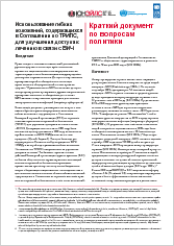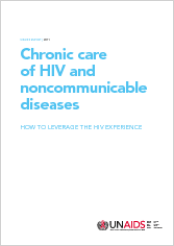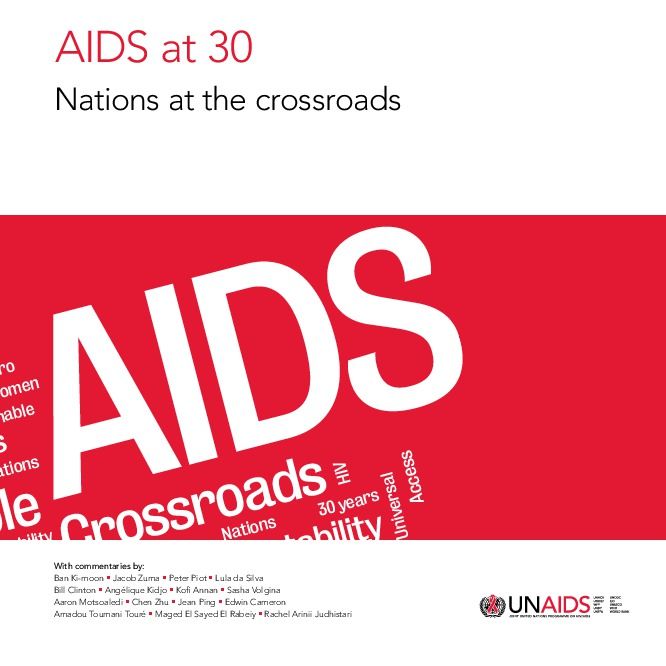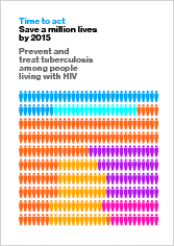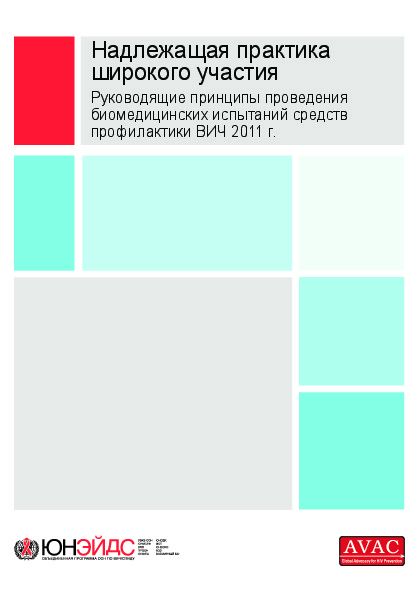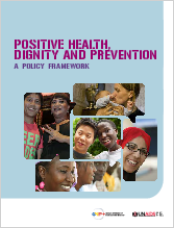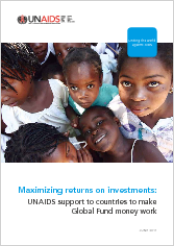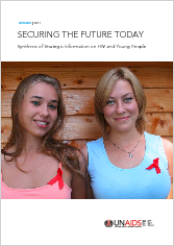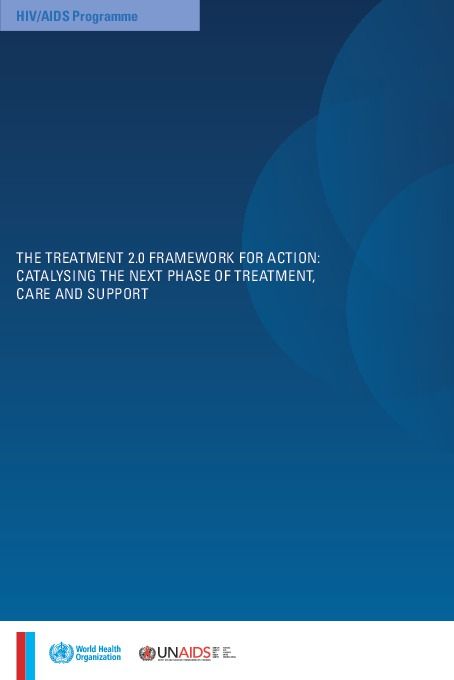Documents
UNAIDS Policy brief: Using TRIPS flexibilities to improve access to HIV treatment
15 мартаа 2011 года.
Documents
Chronic care of HIV and noncommunicable diseases: How to leverage the HIV experience
26 мая 2011 года.
Many countries with a high burden of HIV infection also face burgeoning epidemics of noncommunicable diseases. Similar to HIV, noncommunicable diseases are most frequent in low- and middle-income countries, and the age-adjusted death rates from noncommunicable diseases are nearly twice as high in low- and middle-income countries as in high-income countries. People living with HIV often also have high rates of noncommunicable diseases. With HIV programmes rapidly expanding, people with HIV are living longer and ageing, and are developing non-HIV-related chronic conditions similar to the rest of the population.
Documents
AIDS at 30: Nations at the crossroads
02 июня 2011 года.
This report provides evidence of how much we have achieved and weighs that against our vision for the future: zero new HIV infections, zero discrimination and zero AIDS‑related deaths. In these pages you will find scientific analysis, personal insights and the results of extensive national and regional consultations at the front lines of the AIDS response. While perspectives differ, one simple truth emerges: we cannot break the arc of this epidemic – where five people were newly infected for every three starting treatment in 2010 – if we adopt a 'business as usual' approach.
Documents
Time to act: Save a million lives by 2015 - Prevent and treat tuberculosis among people living with HIV
06 июня 2011 года.
We live in a time of unprecedented hope for the 33.3 million people living with HIV worldwide. Antiretroviral therapy (ART) offers the promise of a full and fulfilling life. Now people living with HIV can raise their families, work and pursue their dreams. But a thief is in our midst—one that is routinely robbing people, and the countries they live in, of their futures. Every minute, three people living with HIV have their lives snatched away by tuberculosis (TB). Africa, hit hard by HIV, is also hit hard by TB. TB is the main cause of death in people living with HIV.
Documents
Надлежащая практика широкого участия: Руководящие принципы проведения биомедицинских испытаний средств профилактики ВИЧ (2011 г.)
29 июня 2011 года.
Руководство по надлежащей практике широкого участия (НПШУ) представляет собой систематические рекомендации для структур, финансирующих, спонсирующих и проводящих испытания, по эф-фективному вовлечению заинтересованных сторон в процесс раз-работки и проведения биомедицинских испытаний средств профи-лактики ВИЧ.
Documents
Positive Health, Dignity and Prevention – A policy framework
01 июля 2011 года.
The primary goals of Positive Health, Dignity and Prevention are to improve the dignity, quality, and length of life of people living with HIV; which, if achieved will, in turn, have a beneficial impact on their partners, families, and communities, including reducing the likelihood of new infections.
Documents
Maximizing returns on investment: UNAIDS support to countries to make Global Fund money work
21 июля 2011 года.
This publication describes how the Joint United Nations Programme on HIV/AIDS (UNAIDS) partners with country partners and the Global Fund to Fight AIDS, Tuberculosis and Malaria (Global Fund) to strengthen the global response to AIDS and to accelerate progress towards universal access to HIV prevention, treatment, care and support, and the achievement of the Millennium Development Goals (MDGs).
Documents
Обеспечивая будущее сегодня: объединение стратегической информации о ВИЧ и молодых людях
27 июля 2011 года.
Этот доклад показывает, что глобальные обязательства будут достигнуты только при условии признания особых потребностей молодежи, а также осуществления, соблюдения и защиты их прав. Для снижения количества новых ВИЧ-инфекций среди молодых людей и выполнения более широких задач обеспечения социальной справедливости, сформулированных в Целях развития тысячелетия, а также для того, чтобы повернуть вспять ход развития эпидемии, программы профилактики и лечения ВИЧ должны учитывать особые потребности молодых людей.

